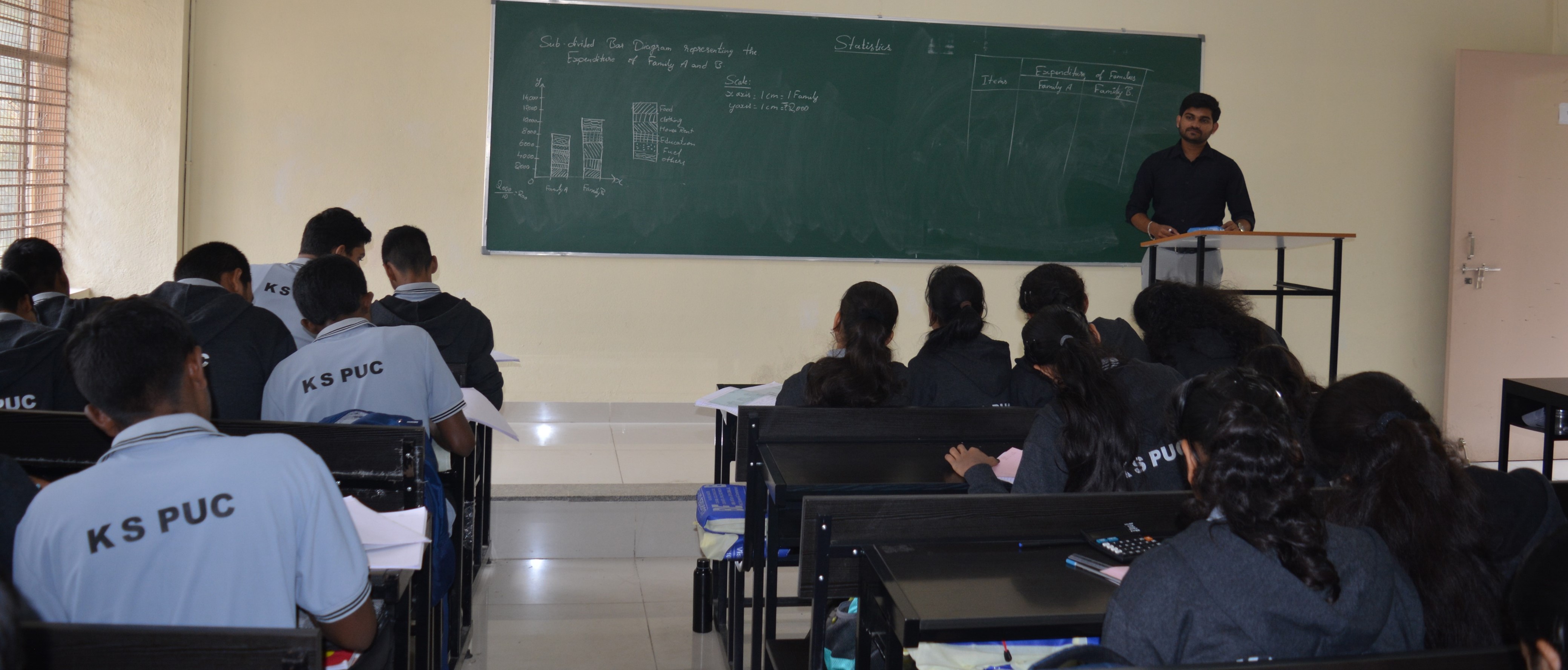
Affiliation No : AS1018
APPLY NOWNotification |
Kammavari Sangham (R) 1952, K. S. Group of Institutions
K. S. PRE UNIVERSITY COLLEGE
No.14, Raghuvanahalli, Kanakapura Road, Bengaluru - 560109, [email protected] +91 74830 23380
(Recognized by Government of Karnataka & Approved by PU Board)
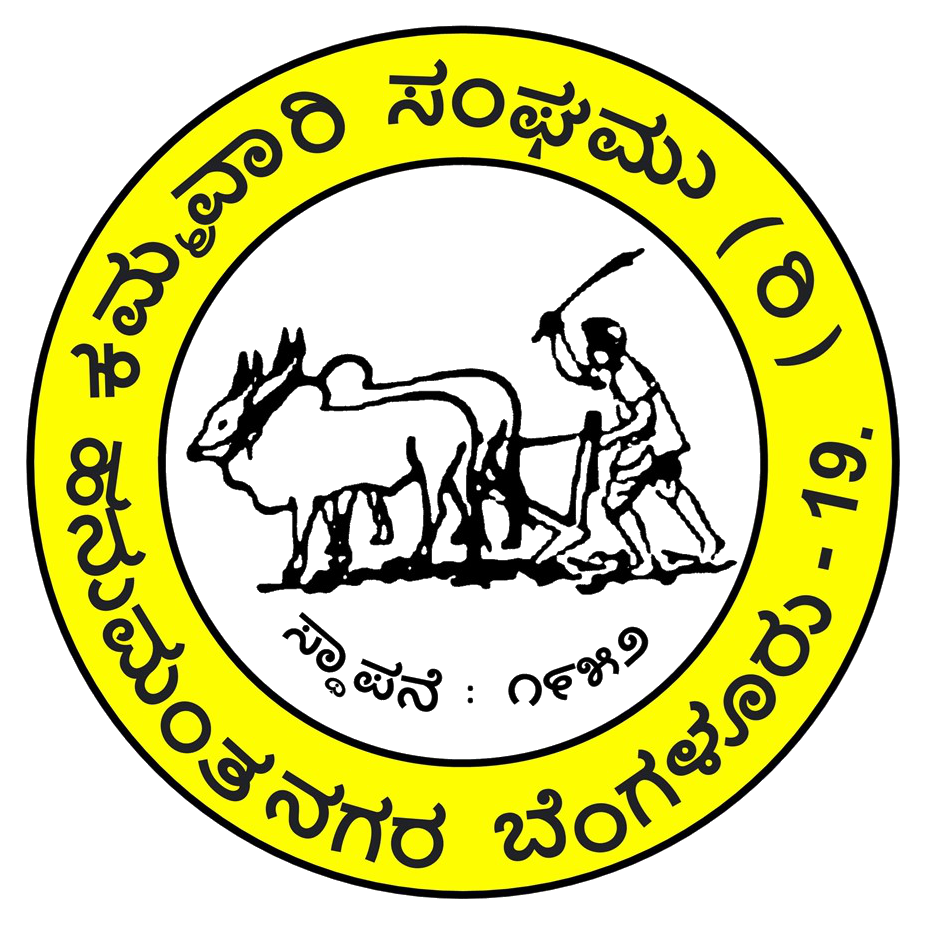
Announcement |
The PUC Commerce Programme seeks to develop individuals who have received education in a variety of subject areas. The principles of commerce, accounting, economics, statistics, and history will be mastered by students, who will also obtain an understanding of the key business sectors as a result. The distinguished and intensely competitive educational learning is a key component of the PUC at KS PU College.
Students who complete the course will have a thorough understanding of and practical applications for ideas in commerce such trade, business, accounts, and statistics. Skills like problem-solving, communication, decision-making, leadership, and strategy are developed during the programme.
EBACs Stands for Economics, Business Studies, Accountancy, Computer Science.
EBAS Stands for Economics, Business Studies, Accountancy, Statistics.
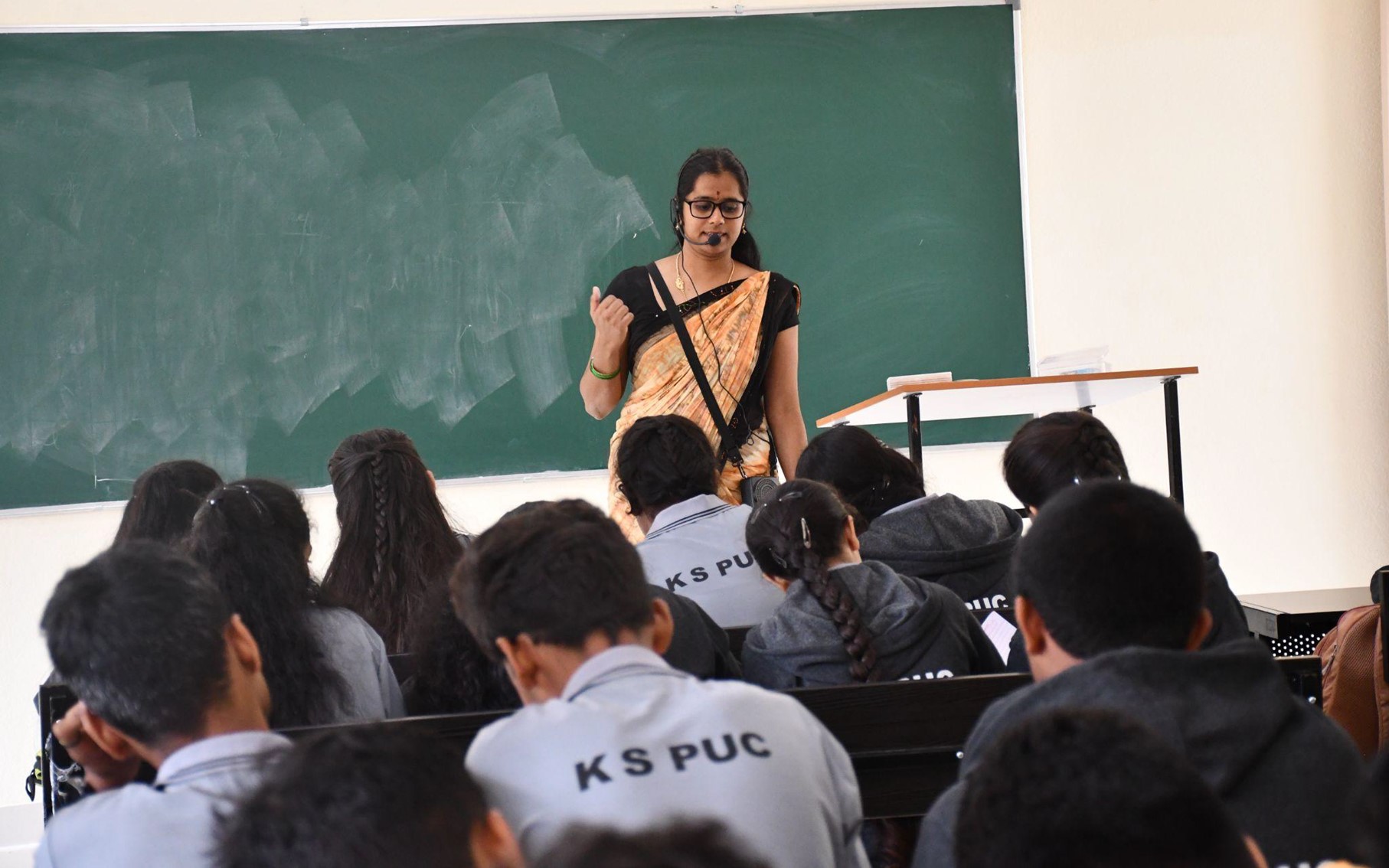
Economics is a social science that focuses on the production, distribution, and consumption of goods and services, and analyzes the choices that individuals, businesses, governments, and nations make to allocate resources.
Assuming humans have unlimited wants within a world of limited means, economists analyze how resources are allocated for production, distribution, and consumption.
An economist studies the relationship between a society's resources and its production or output, and their opinions help shape economic policies related to interest rates, tax laws, employment programs, international trade agreements, and corporate strategies.
Economists analyze economic indicators, such as gross domestic product and the consumer price index to identify potential trends or make economic forecasts.
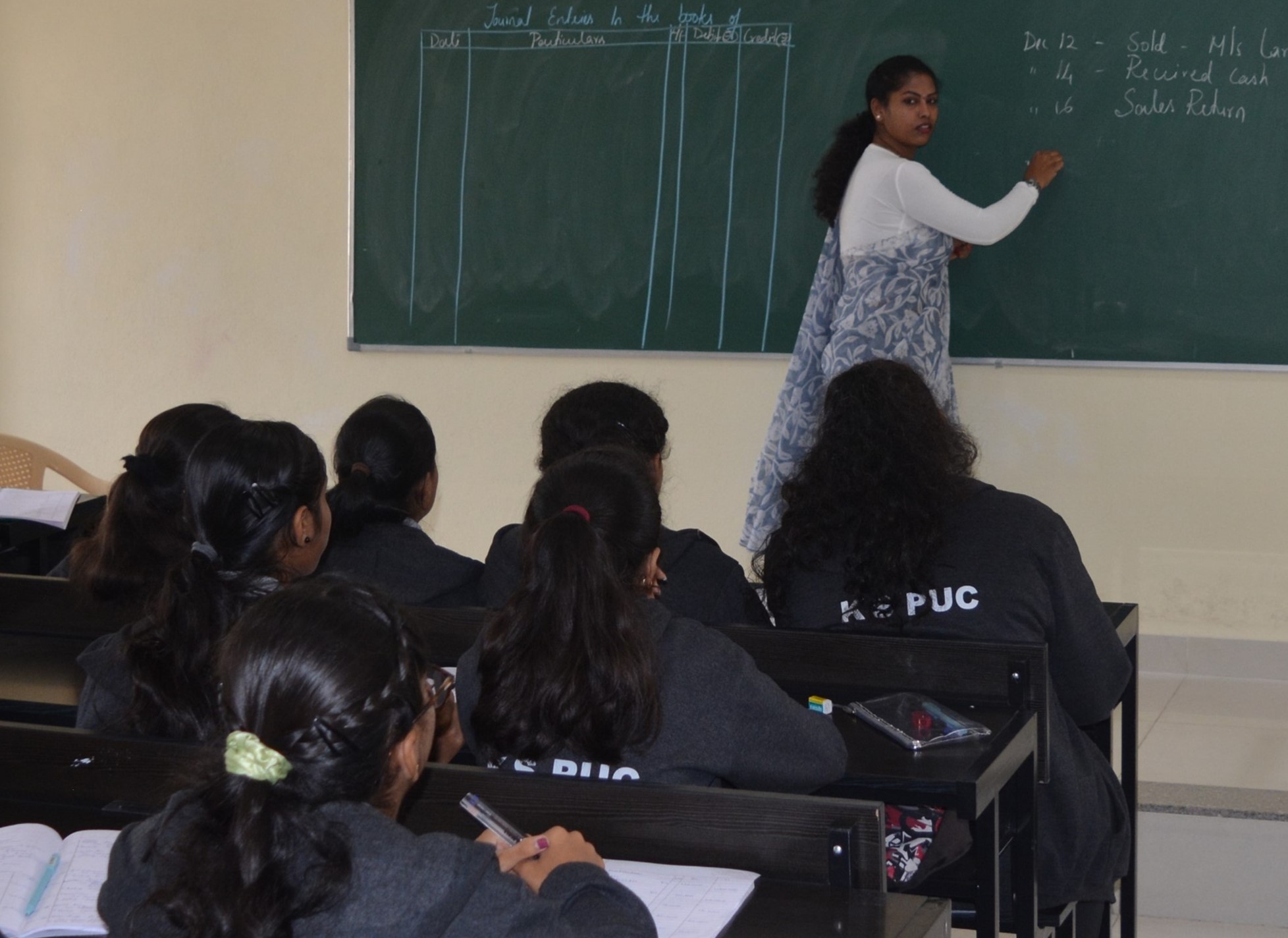
Business studies, is a field of study that deals with the principles of business, management, and economics. It combines elements of accountancy, finance, marketing, organizational studies, human resource management, and operations. Business studies is a broad subject, where the range of topics is designed to give the student a general overview of the various elements of running a business.
Business Studies is a comprehensive subject in Social Science, allowing the meticulous study of a span of skills, such as finance, organisation, accountancy, marketing and human resources management.
A study of business is an expanse of focus within an academic agenda taught at an academic establishment, which occurs mainly around some characteristics of the conduct of business at the community level, national or universal marketplace.
Some of the benefits of learning business studies include:
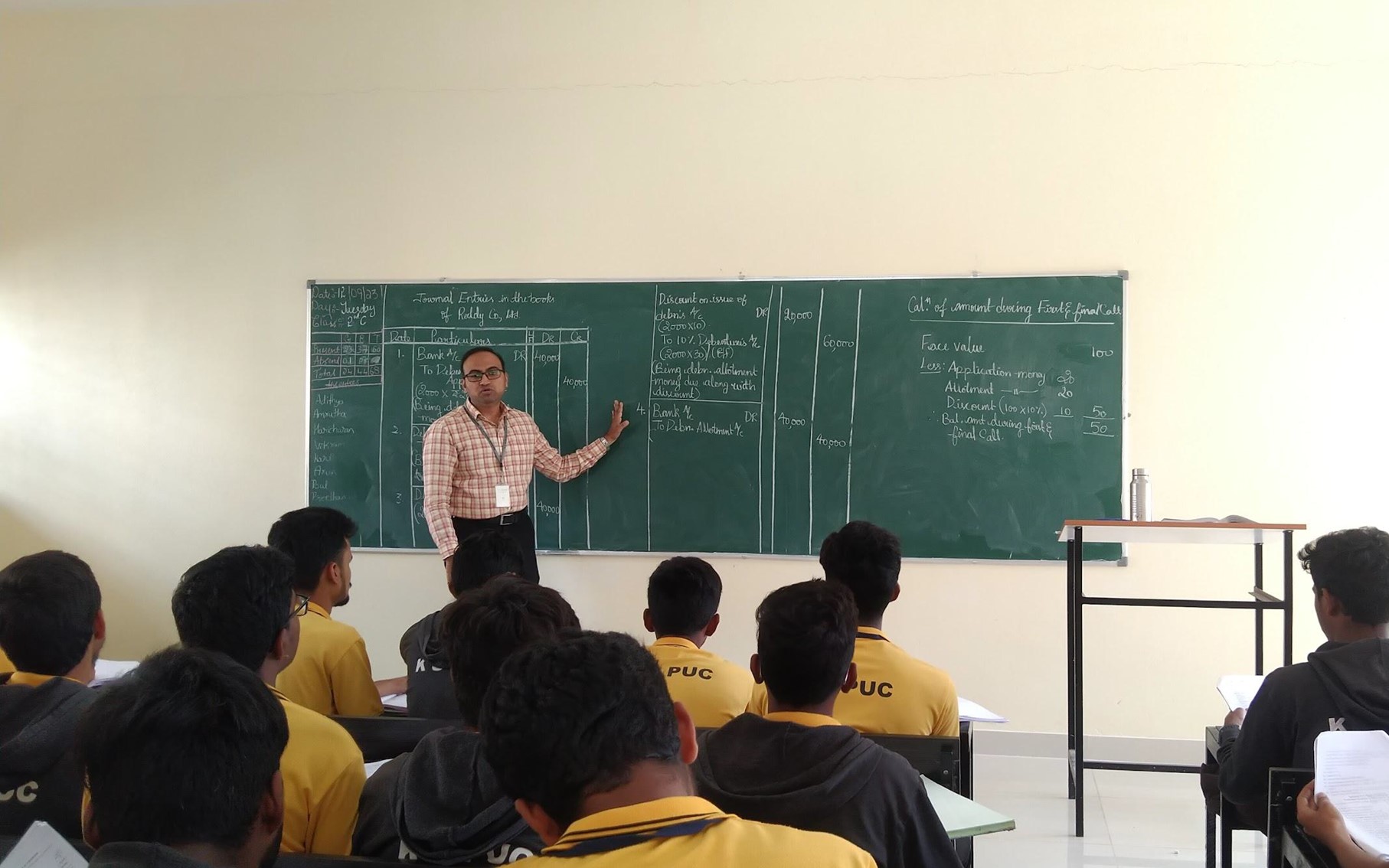
Accounting can be defined as a process of reporting, recording, interpreting and summarising economic data. The introduction of accounting helps the decision-makers of a company to make effective choices, by providing information on the financial status of the business.
The American Institute of Certified Public Accountants (AICPA) had defined accounting as the "art of recording, classifying, and summarising in a significant manner and in terms of money, transactions and events which are, in part at least, of financial character, and interpreting the results thereof".
Today, accounting is used by everyone and a good understanding of it is beneficial to all. Accountancy act as a language of finance. To understand accounting efficiently, it is important to understand the aspects of accounting.
It is a consequence of a company has to undergo when the number of monetary transactions is involved. Such as purchasing new machinery, transportation, machine installation on-site, etc.
The accounting system should be outlined in such a way that the right data is identified, measured, recorded and communicated to the right individual and at the right time.
In refers to the size of activities and level of a business operation.
It is about communicating important financial information to the customers, according to which they will make the correct decision.
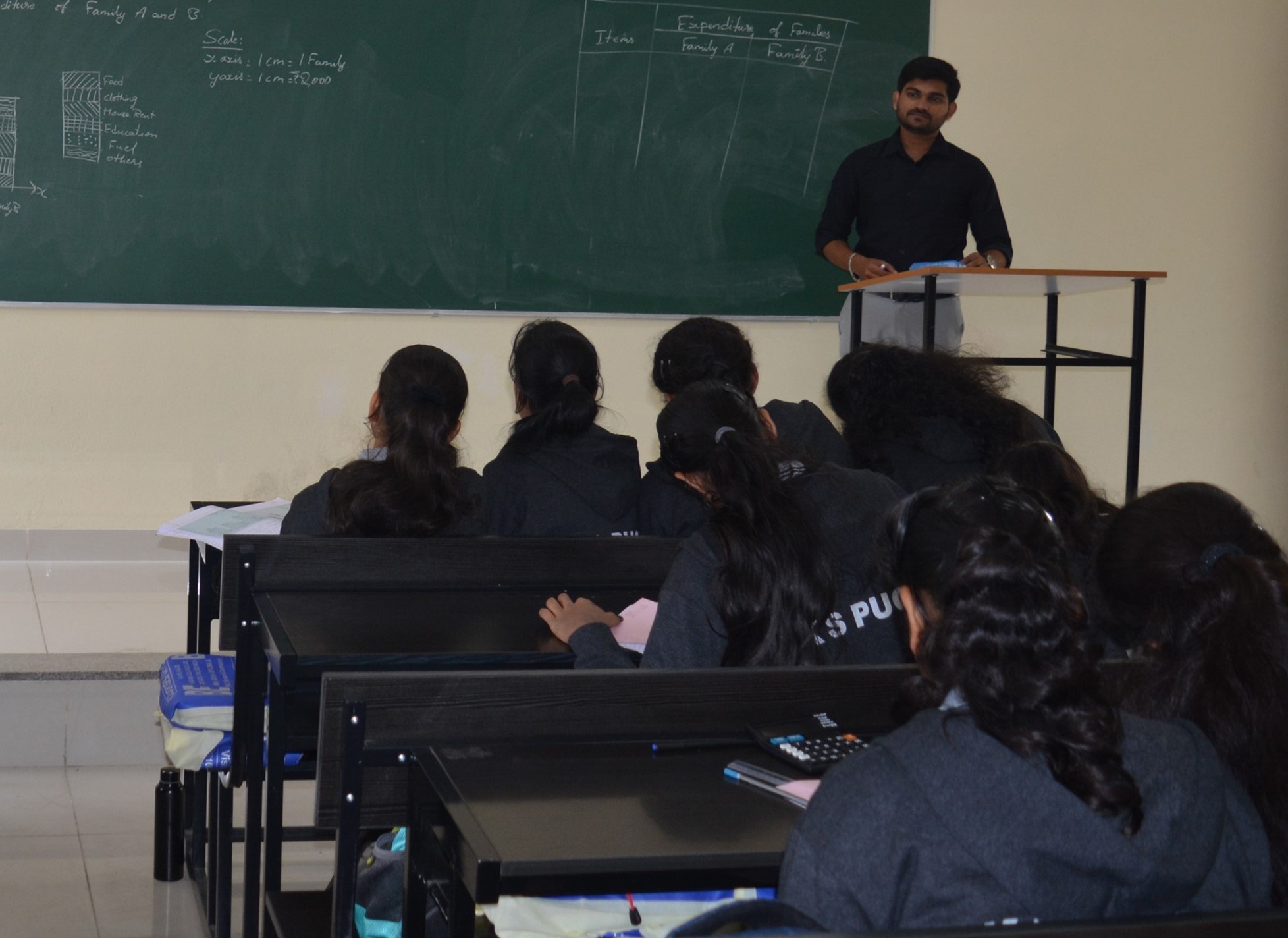
Statistics is a branch of mathematics that deals with the collection, review, and analysis of data. It is known for drawing the conclusions of data with the use of quantified models. Statistical analysis is a process of collecting and evaluating data and summarizing it into mathematical form.
Statistics can be defined as the study of the collection, analysis, interpretation, presentation, and organization of data. In simple words, it is a mathematical tool that is used to collect and summarize data.
Uncertainty and fluctuation in different fields and parameters can be determined only through statistical analysis.
These uncertainties are determined by the probability that plays a very important role in statistics.
In simple words statistics is the study and manipulation of given data. It deals with the analysis and computation of given numerical data.
Statistics consist of the measure of central tendency and the measure of dispersion. These central tendencies are actually the mean, median, and mode and dispersions comprise variance and standard deviation.
Mean is defined as the average of all the given data. Median is the central value when the given data is arranged in order. The mode determines the most frequent observations in the given data.
Variation can be defined as the measure of spread out of the collection of data. Standard deviation is defined as the measure of the dispersion of data from the mean and the square of the standard deviation is also equal to the variance.
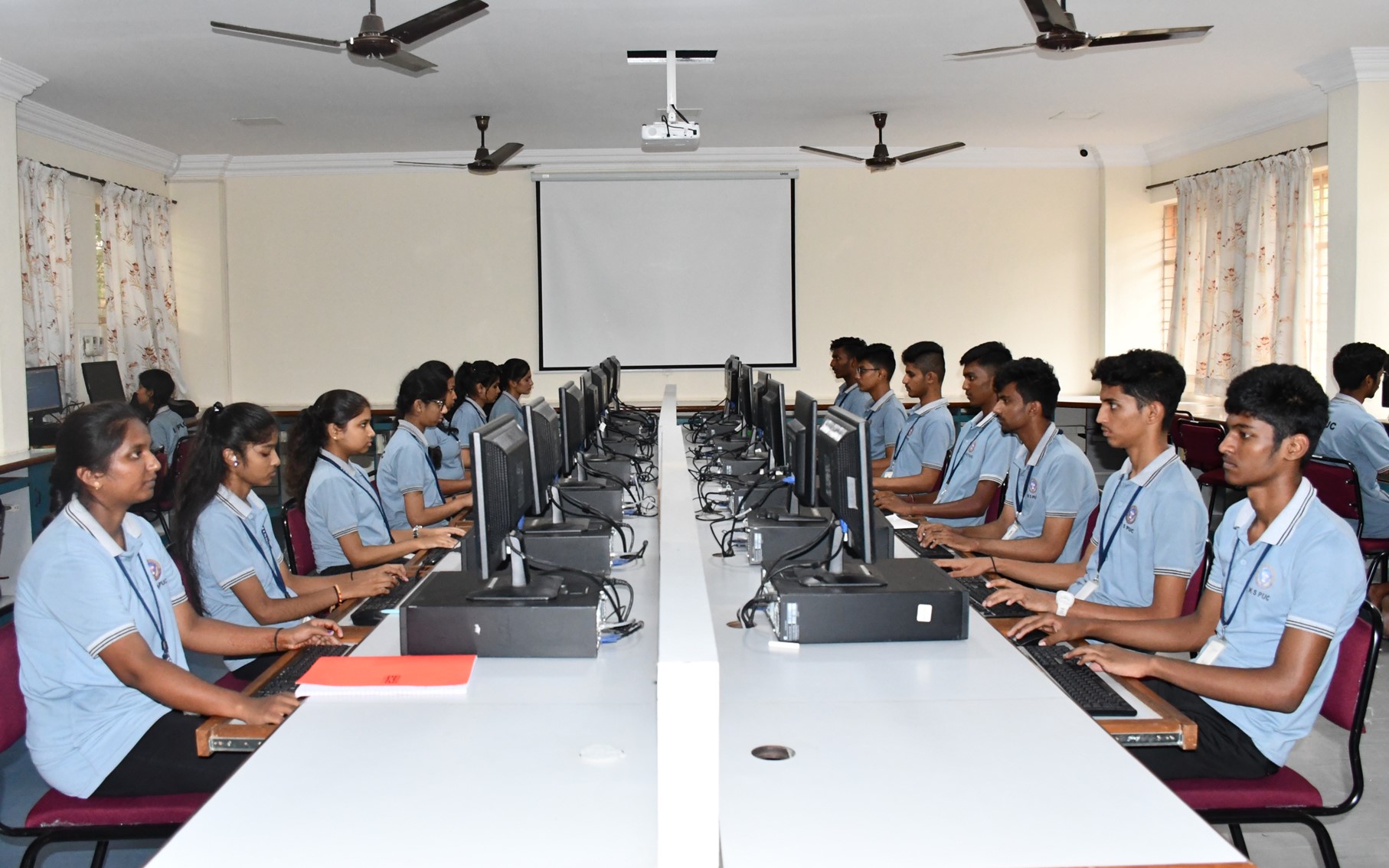
Despite the fact that the word "computer" technically means "to compute" or "to calculate," we can see in today's society that computers are utilised for much more than just math.
'Computer is an electronic device that receives input, stores or process input as per the instructions & provides output in desired format.'
In other words, A computer is a machine that can be programmed to accept data (input), process it into useful information (output), and store it away (in a secondary storage device) for safekeeping or later reuse. The processing of input to output is directed by the software but performed by the hardware.
The study of computing and information is known as computer science. The theory of computation, algorithms, computational issues, and the design of computer systems' hardware, software, and applications are all topics covered by computer science.
We can use computers to assist with issue solving. However, in order to address a problem, it must first be comprehended, along with potential solutions. This is possible thanks to computational thinking.
We may use computational thinking to take a complex situation, identify the issue, and create potential solutions. Then, we may communicate these solutions in a way that a machine, a person, or both, can comprehend.
Using computational thinking, a complex problem can be divided up into manageable components. Basically, computational thinking enables you to divide an issue into manageable chunks that a computer could comprehend and eventually assist in solving. Coding is not computational reasoning. A computer is programmed with instructions on what to do and how to do it. While computational thinking involves determining what to instruct the machine to do. The process of thinking like a computer scientist is known as computational thinking.
After completion of PUC Course, Commerce students can choose :